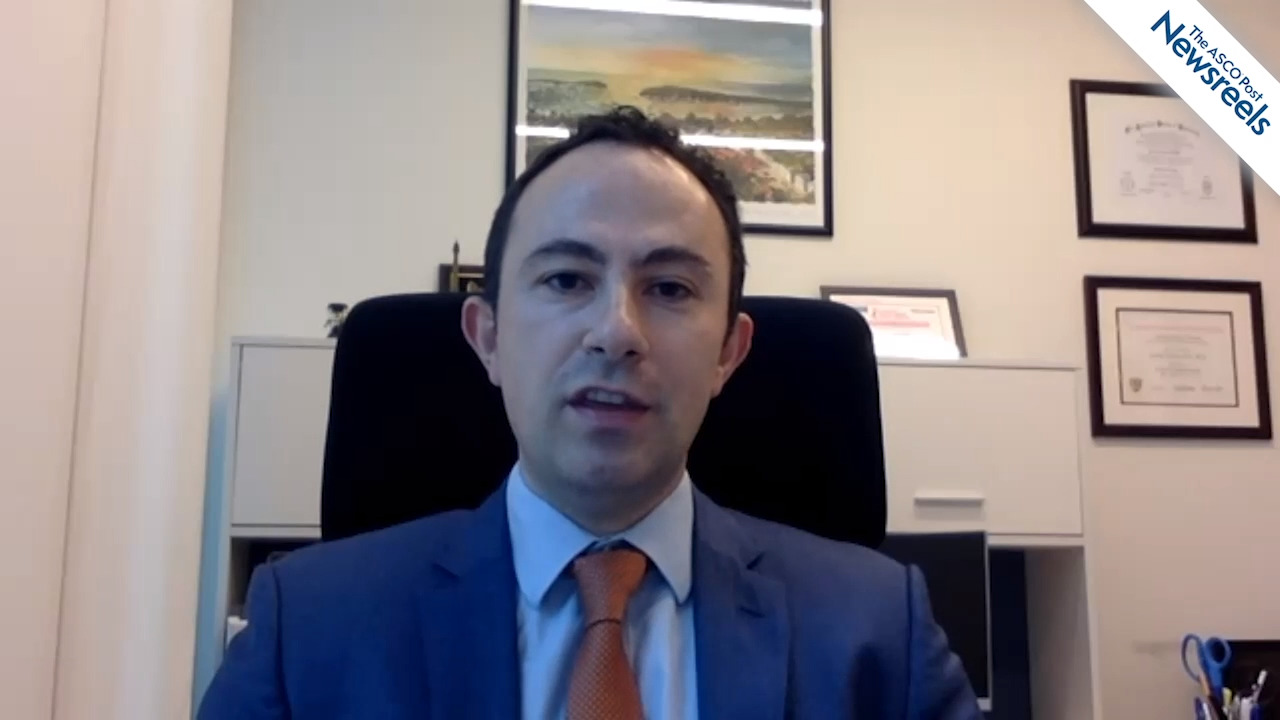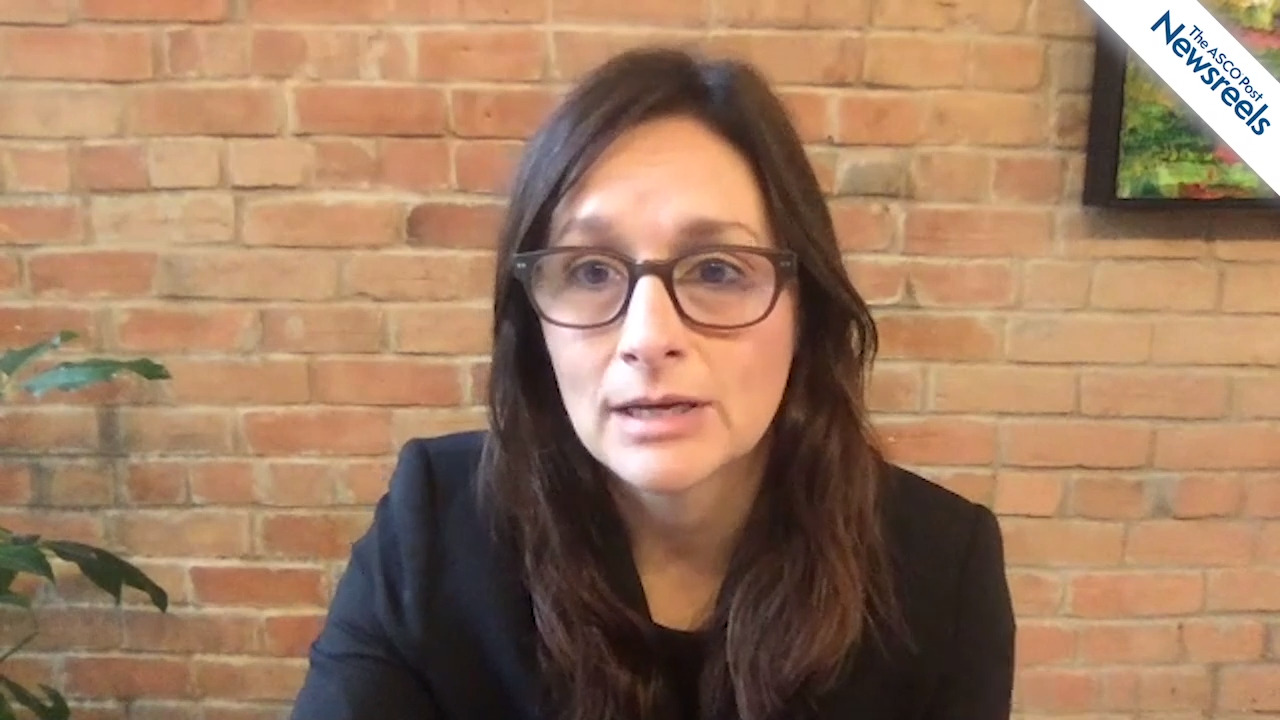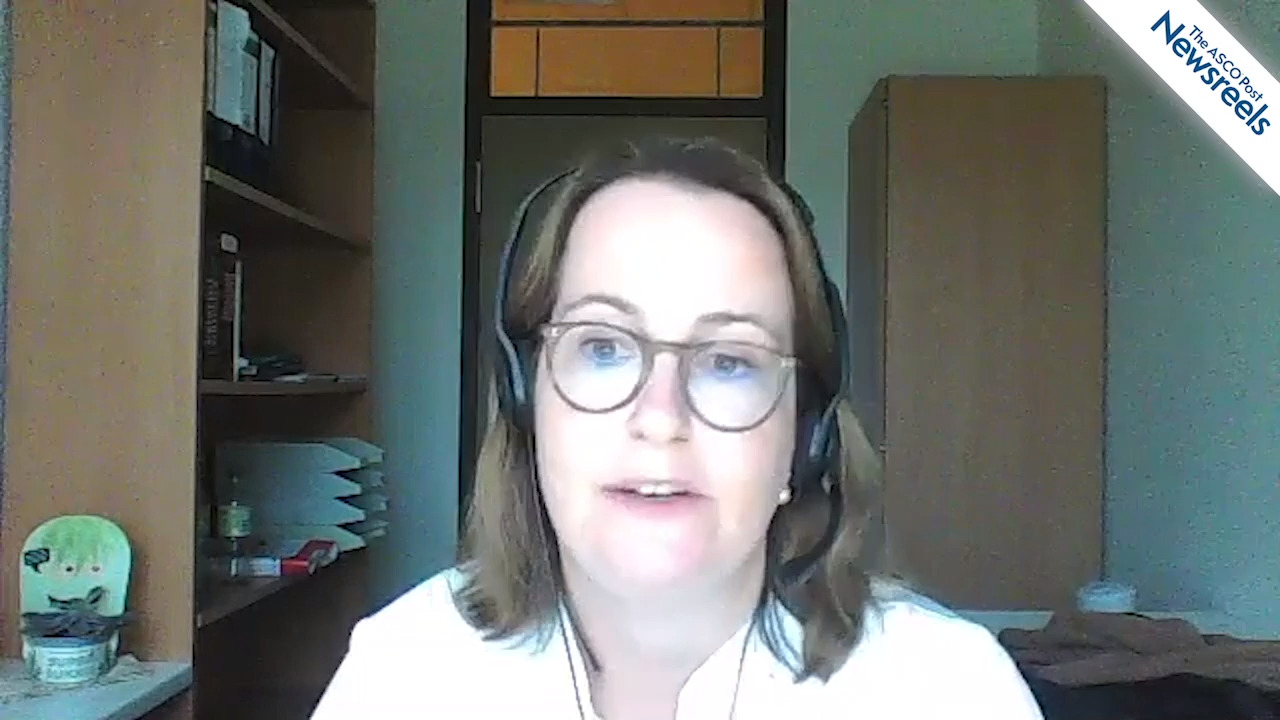Jeff M. Michalski, MD, MBA, on Medulloblastoma and Radiation Treatment in Pediatric Patients
2020 ASTRO Annual Meeting
Jeff M. Michalski, MD, MBA, of the Washington University School of Medicine, discusses a Children’s Oncology Group study that confirmed data previously reported: Involved-field radiotherapy is noninferior to posterior fossa radiotherapy in patients with average risk-medulloblastoma. However, low-dose craniospinal irradiation is not as effective as standard-dose irradiation in younger children (Abstract 1).
The ASCO Post Staff
Youssef Zeidan, MD, PhD, of the American University of Beirut Medical Center, discusses study findings showing that breast-conserving surgery, whole-breast irradiation, and trastuzumab offer effective local tumor control for patients with HER2-positive breast cancer. An additional radiation boost does not seem to further improve outcomes (Abstract 52).
The ASCO Post Staff
Linda G.W. Kerkmeijer, MD, PhD, of the University Medical Center Utrecht and Radboud University Medical Center, discusses results from the phase III FLAME trial, which explored the question of whether biochemical disease–free survival can be improved by adding a focal boost to the intraprostatic lesion in whole-gland external-beam radiotherapy for patients with intermediate- and high-risk prostate cancers (Abstract 126).
Daniel E. Spratt, MD, of the University of Michigan Rogel Cancer Center, discusses a pooled analysis of two phase III trials showing adjuvant androgen-deprivation therapy (ADT) improves biochemical control and reduces distant metastasis when compared with a neoadjuvant approach, with no difference in late gastrointestinal or genitourinary toxicities. The analysis also showed that delaying radiotherapy to deliver neoadjuvant ADT did not benefit most patients (Abstract 32).
The ASCO Post Staff
Cynthia Menard, MD, of the University of Montreal, discusses a study on the use of prostate-specific membrane antigen PET and CT to guide treatment. The scans led to high rates of new lesion detection and therefore intensification of radiotherapy for patients with prostate cancer, without an increase in side effects (Abstract 34).
Juliane Hörner-Rieber, MD, of Heidelberg University Hospital, discusses phase III results of the MINT trial, which showed that conventionally fractionated intensity-modulated radiotherapy with a simultaneous integrated boost was noninferior to three-dimensional conformal radiotherapy followed by a sequential boost for both local control and cosmesis in patients with breast cancer (Abstract 19).





